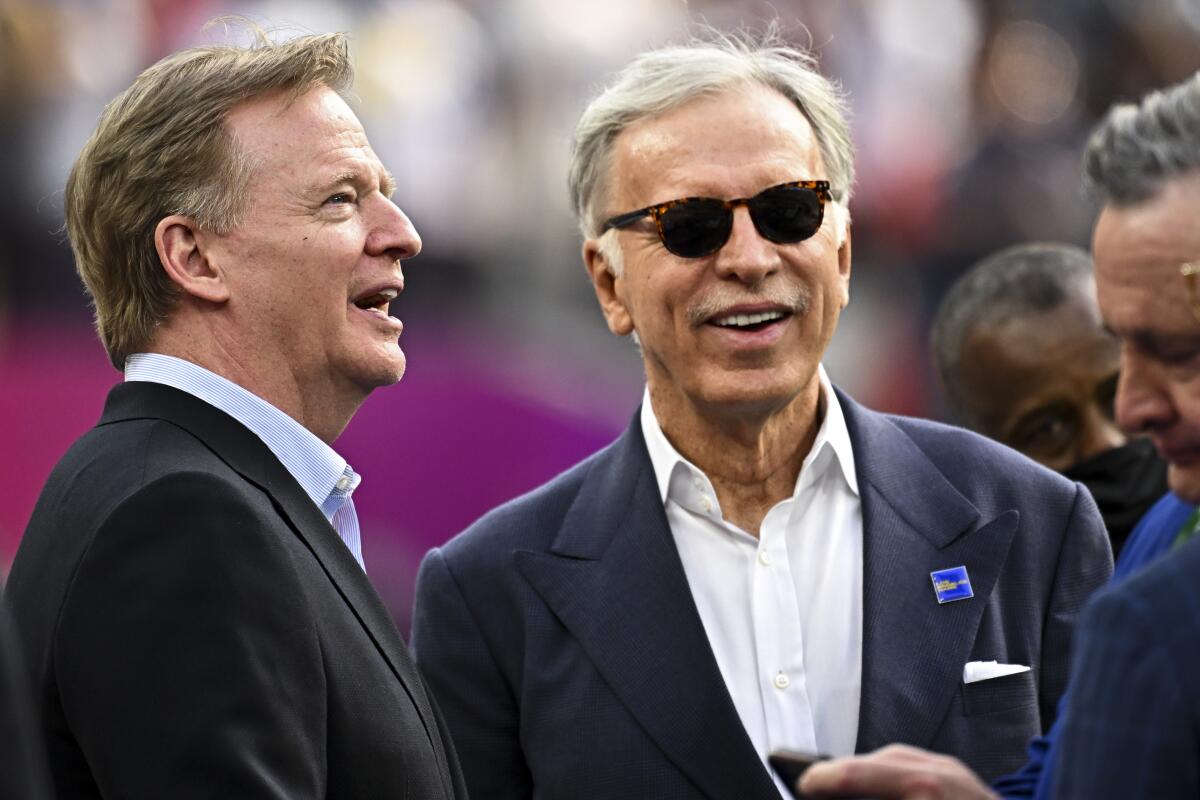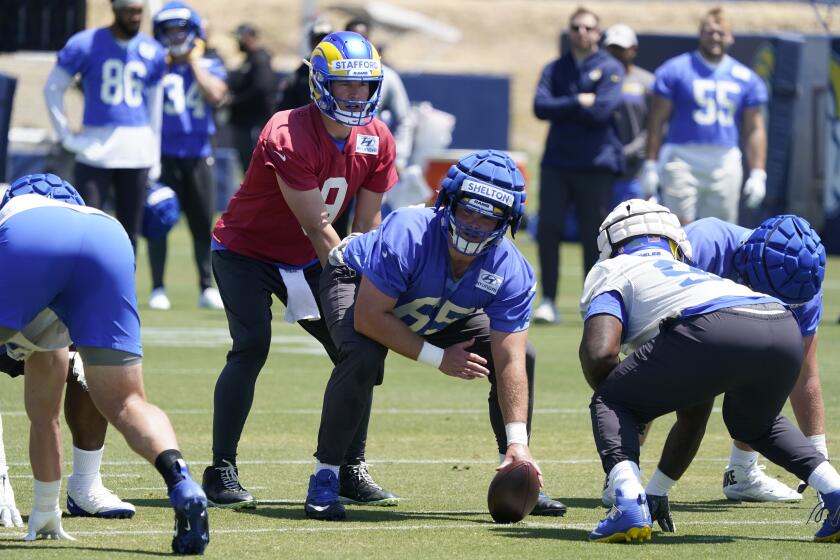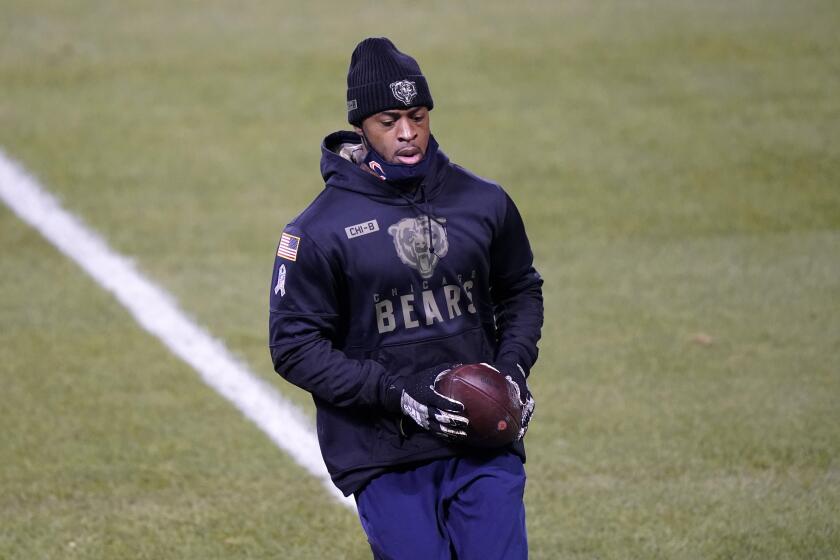All NFL teams are footing the bill for St. Louis’ controversial lawsuit against Rams

- Share via
ATLANTA — The Rams and NFL paid $790 million last year to settle a lawsuit with St. Louis over the team’s relocation to Los Angeles.
Now, the league is sorting how to cover that bill and already has spread some of that staggering expense among all 32 teams — meaning everyone is on the hook for at least several million. Owners discussed this at their annual spring meeting, which concluded Tuesday.
According to a report by The Athletic, the NFL already has taken $7.5 million from each club by deducting that amount from revenue-sharing payments. If the 31 other teams contribute that amount, that’s $232.5 million, or roughly a third of the settlement. The Times confirmed that the teams were assessed those payments, although not the specific amount.
It’s a hotly contested dispute among the teams, because Rams owner Stan Kroenke was required to sign an indemnification agreement as part of his deal to relocate the team. The owners of the Chargers and Raiders signed identical agreements to cover the “costs, including legal fees and other litigation expenses” to defend challenges to their respective moves.
While the Rams were touting their stadium in Inglewood, the Chargers and Raiders joined forces to back a competing proposal in Carson. The Rams contend that the competing teams outlined for St. Louis officials why the Rams weren’t in compliance with the relocation guidelines, which eventually was at the heart of the St. Louis lawsuit.
Rams quarterback Matthew Stafford needed an injection for his ailing elbow on his passing arm and might not throw until training camp in August.
It’s Kroenke’s contention that if people within the league provided St. Louis with a blueprint of how best to sue the Rams, he shouldn’t be responsible for shouldering the entire settlement.
The issue isn’t expected to be resolved anytime soon.
“The owners are taking their time to discuss and deliberate this very important issue,” said Marc Ganis, a sports financing expert. “So whatever comes out of it will be the result of a lot of thought and discussion.”
The Pro Bowl is on the brink. The game is little more than a pantomime of actual football, and the league likely is going to drop it in favor of some event that honors the chosen players. There will be more discussion on changes in the weeks to come.
“I’ve spoken to several players myself about what works and what doesn’t work,” commissioner Roger Goodell said. “I think the conclusion was that the game itself doesn’t work and that we needed to find a different way to celebrate our players. … We talked a lot about how some of the events around the Pro Bowl are extraordinarily popular, whether it’s the quarterback challenge or other events. So those are things that we’ll probably build on.”
The league extended its deal with Indianapolis, so the scouting combine will remain there for at least the next two years. Dallas and L.A. also submitted bids to play host to the annual event.
Owners agreed to make changes to the Rooney Rule, aimed at diversifying both the coaching and team executive ranks. Moving forward, when hiring a quarterback coach a team must interview at least one female or minority candidate from outside the franchise for that position.
Allen Robinson gives the Rams a different look at wide receiver as they prepare to defend their Super Bowl title with offseason training.
“We feel where we need to work a little bit harder is on the offensive side of the ball,” Goodell said. “Because a lot of teams have stressed more of the offensive coach who can develop the quarterback and develop the offensive system.”
In terms of timing, a club cannot conduct a head coach interview with a candidate from another team until three days after the season ends for that candidate’s team. That gives the prospective coach more time to prepare for an interview, rather than having to meet with a new team in the immediate aftermath of a loss or the season’s end.
More to Read
Go beyond the scoreboard
Get the latest on L.A.'s teams in the daily Sports Report newsletter.
You may occasionally receive promotional content from the Los Angeles Times.













